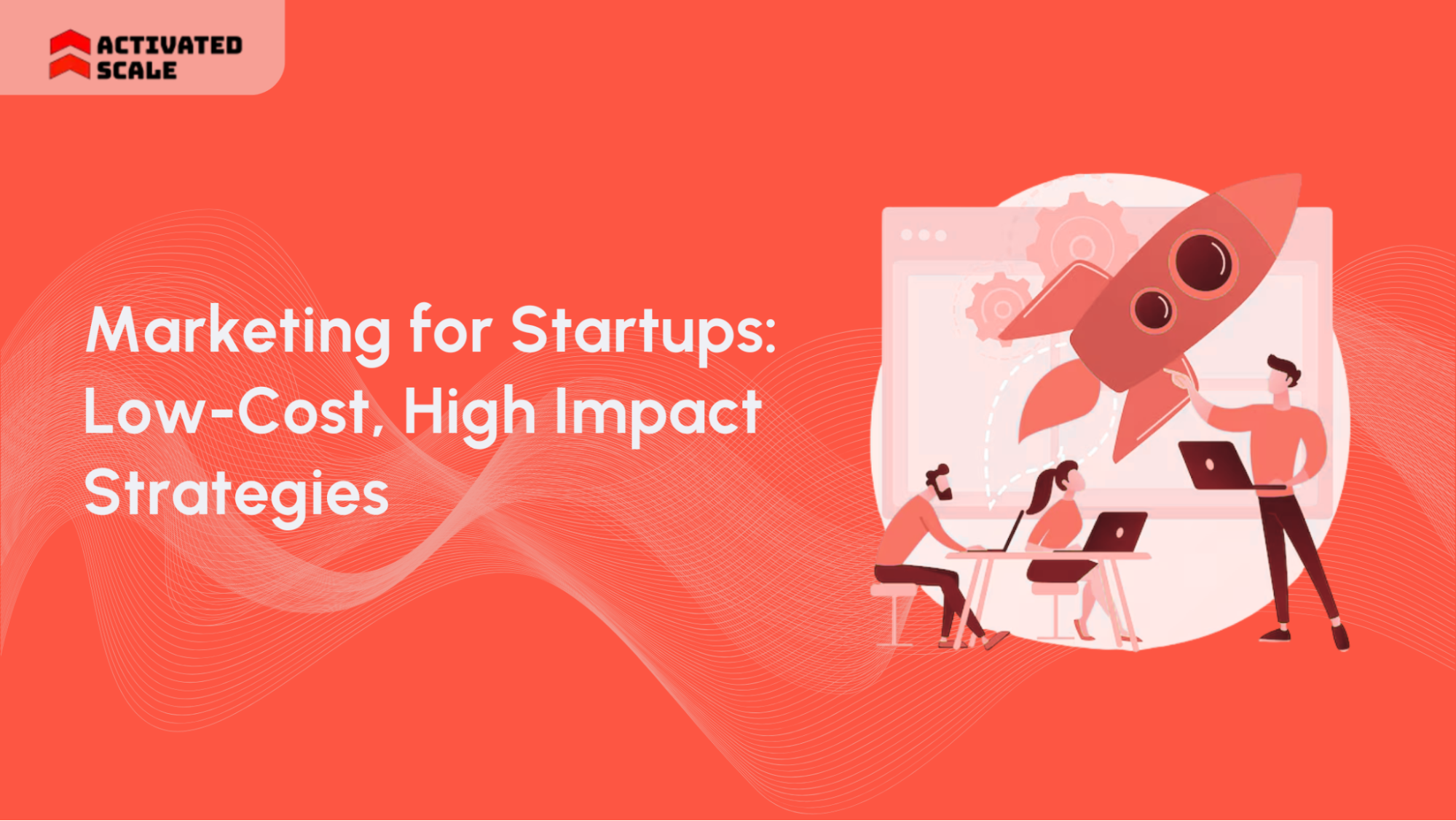Have you ever wondered why some startups skyrocket in the early stages while others struggle to gain traction?
The secret often lies in their sales strategy, particularly the involvement of the people who know the product best: The Founders.
Embracing a Founder-Led Sales Strategy not only helps pinpoint the crucial fit between your product and the market but also sets a strong foundation for sustainable growth.
In the bustling world of startups, the role of founders extends far beyond ideation and development. They are the first salespeople, with a clear vision and a deep understanding of their product, which allows them to communicate its value effectively and passionately. This hands-on approach is critical in driving the initial revenue that fuels early and crucial business milestones.
Founders aren't just leaders; they are visionary salespeople, leveraging their comprehensive product knowledge and enthusiasm to engage with customers on a more personal and impactful level.
In this blog, we'll explore how startups can harness the power of a Founder-Led Sales Strategy to not only survive but thrive in competitive markets.
The Advantages of Founder-Led Sales
Whether you're pitching to your first customer or your hundredth, the personal touch and deep commitment you bring as a founder can transform potential leads into devoted advocates.
Let's dive deeper into how these unique founder qualities can translate into tangible business advantages, setting the stage for a sales strategy that’s as dynamic and driven as you are.
- Deep Product and Market Understanding
Founders possess an intimate knowledge of their products and the markets they serve. This profound understanding allows them to communicate the benefits and functionalities of their product more effectively than anyone else.
By directly engaging with potential customers, founders can articulate how their solution solves specific problems, aligning product capabilities with customer needs seamlessly.
- Passion and Enthusiasm
The genuine passion founders have for their products is contagious, making it a powerful tool in engaging and exciting prospects.
This enthusiasm often translates into more persuasive sales pitches and demonstrations, as founders are inherently motivated by their vision and commitment to their business. Their energy can significantly influence buyer decisions, making interactions memorable and impactful.
- Building Trust Through Authenticity
When founders lead sales, they bring a level of authenticity that is hard to replicate. Their direct involvement in sales conversations demonstrates a commitment to the product and the customer.
This transparency builds trust and credibility, fostering strong relationships with early customers. By dealing directly with the founder, clients feel a special connection to the product and company, believing in the honesty and integrity of what they are purchasing.
- Effective Adaptation and Feedback Integration
A key advantage of founder-led sales is the ability to quickly adapt and integrate customer feedback into the product development cycle.
Founders, being at the forefront of sales interactions, can gather insights firsthand and respond to customer suggestions and concerns swiftly. This responsiveness not only improves the product but also enhances customer satisfaction, as clients see their input being valued and implemented.
Read: Sales Development Programs in the United States
Developing a Founder-Led Sales Process
Isn't it exhilarating to see how much passion and authenticity can transform your startup’s sales approach?
Now that you’re pumped about the advantages of founder-led sales, let’s roll up our sleeves and dive into how you can develop this superpower.
Yes, it’s time to mold these advantages into an improved sales process that feels less like a process and more like your startup’s success story in the making.
- Defining Your Target Market and Understanding Customer Needs
The first step in a founder-led sales strategy is to define who your ideal customer is and what specific needs they have.
This involves a mix of market research, analysis of customer behavior, and segmentation.
Understanding who your customers are and what they seek allows you to tailor your marketing and sales strategies directly to their preferences and pain points, ensuring a higher rate of engagement and sales conversion.
- Developing a Compelling Sales Pitch
Once you understand your target market, the next step is crafting a sales pitch that resonates.
This pitch should clearly articulate the value your product brings, specifically how it solves problems or improves the customer’s situation. Focus on the benefits rather than just the features.
A compelling sales pitch is concise, makes a strong emotional or logical appeal, and is tailored to the listener's specific interests and needs.
- Identifying and Reaching Out to Potential Customers
With a clear understanding of your market and a compelling pitch in hand, the next step is to identify and actively engage potential customers.
This can involve a variety of tactics such as networking events, social media engagement, direct outreach (email, calls), and participating in industry forums.
The key here is to use your research to find out where your potential customers are most likely to be found and engage them there.
As you refine your sales process, consider the advantages of Activated Scale’s unique platform, which offers flexible access to experienced fractional sales talent, enabling you to scale your sales force as needed without long-term commitments.
Key Components of Effective Founder-Led Sales

You've now got the blueprint to start selling like a founder. But why stop there? Let's add some tools to your arsenal to make those sales conversations as smooth as peanut butter.
Up next, we’re going to unpack the key components that make founder-led sales not just effective, but spectacularly effective. Ready to engage buyers like never before? Let’s get into it!
- Enhancing Buyer Engagement with Innovative Methods
In today’s digital age, traditional sales techniques are being augmented with cutting-edge, interactive methods to capture customer interest. Tools such as augmented reality (AR) demonstrations and real-time product customization interfaces provide a groundbreaking way to present information.
These technologies allow customers to visualize products in their own space or tailor features according to their preferences, offering a hands-on experience from the comfort of their digital devices.
This level of interaction not only keeps customers engaged but also deepens their understanding of the product’s benefits, making it easier for them to visualize the impact of their potential purchase in their lives.
- Active Listening to Transform Sales Conversations
Having discussed innovative methods to engage your audience, it’s crucial to understand that without the foundational skill of active listening, even the most advanced technologies fall short.
Active listening in sales involves more than just hearing words; it's about comprehensively understanding the customer's message and emotions behind it. By genuinely listening to what potential customers say, founders can better understand their needs and tailor their responses accordingly.
This practice not only helps in uncovering real customer pain points but also builds trust and rapport. When customers feel valued and understood, their likelihood of forming a long-term business relationship increases significantly.
- Utilizing Video Presentations and Strategic Questioning
Video presentations are a powerful tool for engaging potential customers, as they combine visual and auditory stimuli to explain complex products or services clearly and effectively.
Coupled with strategic questioning—asking insightful questions that provoke thought and reveal deeper needs—this method can significantly enhance the sales effectiveness, leading to higher conversion rates.
Read: Hire Sales People for Your Startup
Leveraging Psychology and Technology in Sales
Now that you’re equipped with the components to supercharge your sales engagements, let’s sprinkle a bit of modern magic on them.
Imagine using AI and psychological hacks to connect deeper with your customers—let’s explore how that can change the game for you!
The Role of AI, like Chat GPT, in Improving Various Sales Tasks
Artificial intelligence, particularly tools like Chat GPT, can revolutionize sales tasks by automating routine activities, providing real-time customer insights, and even generating personalized communication drafts.
AI can analyze vast amounts of data to identify patterns and preferences, enabling sales teams to tailor their approaches with precision.
This technology not only streamlines processes but also enhances the effectiveness of sales strategies by allowing founders and sales teams to focus more on strategy and less on administrative tasks.
Psychological Techniques like Mirroring to Build Rapport with Prospects
Mirroring, a psychological technique involving subtly mimicking the other person’s body language, tone, and speech patterns, is invaluable in building rapport and trust with potential clients.
By reflecting a prospect’s behaviors and conversational style, salespeople can create a sense of familiarity and comfort, making clients more open to discussion and negotiation.
This method is particularly effective in person but can also be adapted for digital communications through tone and language.
Employing Account-Based Marketing (ABM) Frameworks for Targeted Sales Efforts
ABM is a focused approach that treats individual accounts as markets in their own right. It involves creating highly customized marketing campaigns based on the specific needs, characteristics, and behaviors of an account.
This strategy ensures that marketing and sales efforts are highly targeted and relevant, increasing the likelihood of closing deals. ABM is especially effective for B2B businesses where long-term relationships and high client value are common.
Read: Tips for Hiring a Sales Director for Your Top-Performing Team
Challenges and Adaptation in Founder-Led Sales

With these advanced AI and psychological techniques incorporated into your sales strategy, you're equipped with powerful tools for enhancing customer interactions. However, adopting these tools also comes with its set of challenges, particularly in balancing the many roles you manage as a founder.
Here are a few common hurdles in founder-led sales strategy:
- Time Management and Balancing Diverse Responsibilities
One of the most significant challenges founders face in a sales-led role is managing their time effectively while juggling various other responsibilities.
Founders must prioritize tasks strategically, often delegating non-essential activities or using tools to streamline processes. Effective time management techniques, such as blocking out time for sales activities and setting realistic goals, are essential to ensure that sales efforts do not get sidelined by other business demands.
- Maintaining Enthusiasm While Managing Realistic Commitments
Keeping up the enthusiasm for sales can be challenging, especially when faced with setbacks or slow progress.
Founders need to maintain a positive outlook and motivate themselves and their teams by celebrating small wins and learning from losses. It’s also crucial to set realistic expectations and commitments to prevent burnout and maintain a sustainable pace.
- Adapting Rapidly to Feedback for Immediate Action and Product Focus
A key advantage of being directly involved in sales is the immediate access to customer feedback.
Founders need to be agile, using feedback to make quick decisions about product adjustments or strategy pivots. This rapid adaptation can be a major competitive advantage, allowing the startup to evolve continuously and meet market demands efficiently.
Facing time management or adaptation challenges in your founder-led sales?
Activated Scale’s platform provides a practical solution by connecting you with top-tier fractional sales talent, ready to streamline your efforts and enhance customer interactions.
Mastering Persuasion and Negotiation
Having addressed the challenges associated with founder-led sales, it's time to refine your skills in persuasion and negotiation.
Excelling in these areas is crucial for not only presenting your product effectively but also ensuring mutually beneficial outcomes in your deals.
Persuading Clients of Product Value and Negotiating Win-Win Solutions
Mastering persuasion in sales involves effectively communicating the unique benefits and value of your product to potential clients.
This requires a deep understanding of both the product and the client’s needs, enabling you to highlight how your offering addresses specific pain points or goals.
Additionally, negotiating win-win solutions involves finding common ground where both parties feel they are gaining something of value. This might include flexible pricing, bundled services, or tailored service agreements that meet both the client's requirements and your business objectives.
As you develop your persuasion and negotiation skills, consider how Activated Scale can provide access to seasoned fractional SDRs who specialize in crafting win-win scenarios, enhancing your ability to close deals efficiently and effectively.
Effective Sales Closing Phrases for Different Scenarios
The ability to close a sale confidently and gracefully can significantly impact your success rates. Utilizing effective closing phrases that are tailored to the sales scenario can help seal the deal.
For instance, in a scenario where a client is hesitant, a phrase like "What concerns do you need addressed to feel comfortable moving forward?" can reopen dialogue.
Alternatively, in a more positive scenario, "Are you ready to take this step towards improving [specific benefit]?" can prompt a commitment.
Each phrase should be chosen carefully to reflect the client’s mood and the context of the conversation.
Post-Sale Strategy and Customer Satisfaction
With enhanced negotiation skills at your disposal, you are now well-prepared to not only attract customers but also retain them effectively. The next step is to focus on post-sale engagement, a critical aspect of sustaining customer satisfaction and loyalty.
Importance of Post-Sale Engagement for Long-Term Client Relationships
The relationship with a client doesn’t end after a sale is made; rather, this is where it truly begins.
Effective post-sale engagement is crucial for building long-term relationships.
This includes regular follow-ups, offering additional support, and checking in to ensure the product or service is meeting their expectations. This continued engagement helps in nurturing loyalty, encouraging repeat business, and generating referrals, all of which are vital for sustained business growth.
Training New Sales Team Members on Effective Follow-Up Practices
As your business grows and you bring more sales team members on board, it is critical to train them in effective follow-up practices.
New salespeople should understand the importance of maintaining the relationship after the sale, including how to address any issues that arise and how to identify opportunities for further sales.
Training should cover the timing of follow-ups, the channels to use (email, phone, face-to-face), and the kind of messages to convey, ensuring consistency and professionalism in all client interactions.
Final Thoughts
As we conclude our exploration of the Founder-Led Sales Strategy, it's clear that this approach can be remarkably effective for startups aiming for rapid growth and meaningful connections with their market.
Founders bring a unique blend of passion, knowledge, and vested interest to the sales process, turning every customer interaction into an opportunity to directly influence and accelerate business success.
As your business grows and the time comes to expand your sales efforts, remember that Activated Scale is here to support you.
Our platform is designed to connect you with the top fractional sales talent, tailored to meet the specific demands of startups and small businesses.
Whether you are looking to hire part-time or full-time, our flexible, cost-effective solutions and wealth of experienced professionals ensure that you can increase your sales capacity without the overhead associated with traditional hiring practices.
Take the next step in enhancing your sales strategy by booking a demo call with us today. Let us help you build a sales team that truly aligns with your startup's mission and growth trajectory.
Read: Saving with Outsourced SDR Service for B2B Leads
The Ultimate Guide to Hiring a Salesperson!
Get the step-by-step guide to hiring, onboarding, and ensuring success!
_edi.png)
.png)



